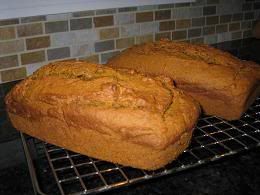One of the reference books I list when I teach is Food In History by Reay Tannahill. This book
 covers the who ate what when and where. But really the reason I mention it is twofold. Since we write historical, the heroine is the one doing the cooking, and since people eat, the writer often has scenes where people gather together and have a meal. And, two, if you’re going to say specifically what your historical characters are eating, you should get it right.
covers the who ate what when and where. But really the reason I mention it is twofold. Since we write historical, the heroine is the one doing the cooking, and since people eat, the writer often has scenes where people gather together and have a meal. And, two, if you’re going to say specifically what your historical characters are eating, you should get it right. A basic history of food. Early man got his food by hunting, fishing and gathering. Then with the Neolithic Revolution came the domestication of plants and animals. Which opened up a whole new world of food.
While bread (made from any number of grains) is considered the ‘staff of life’ as the basic food stuff, I have read that some anthropologist think that the cultivation of grain began, not so much  for making bread, but for making beer or ale.
for making bread, but for making beer or ale.
 for making bread, but for making beer or ale.
for making bread, but for making beer or ale. They base this  on the fact that technologically, making beer is an easier process than making bread, especially leavened bread, and both allow the saving and consumption of calories.
on the fact that technologically, making beer is an easier process than making bread, especially leavened bread, and both allow the saving and consumption of calories.
 on the fact that technologically, making beer is an easier process than making bread, especially leavened bread, and both allow the saving and consumption of calories.
on the fact that technologically, making beer is an easier process than making bread, especially leavened bread, and both allow the saving and consumption of calories. Fun fact: With the Norman Conquest of England the French speaking Normans became the upper class and the local Anglo-Saxons became the commoners. As the English language developed from the blending of the two over time, Anglo-Saxon words described the animals. Cow, sheep, pig are Anglo-Saxon based words. But when the food got to the table, beef, mutton an pork are French based words.
Today we’re used to getting practically any food at any time of year. Obviously this wasn’t always so. First let’s talk location.
 There is a difference between Old World and New World native crops. If you’re writing before 1492 and the beginnings of European exploration of the New World, your Medieval people can’t be eating food found in the New World. The New World added corn, beans, tomatoes, potatoes and peppers to the menu.
There is a difference between Old World and New World native crops. If you’re writing before 1492 and the beginnings of European exploration of the New World, your Medieval people can’t be eating food found in the New World. The New World added corn, beans, tomatoes, potatoes and peppers to the menu. And let’s hear it for Marco Polo who gets credit for bringing back to Italy the noodles he found while visiting the Far East.
And please consider the season when you historical characters are eating. There are the delicates of spring with strawberries, and bounty of summer and the work in the fall to preserve as much as you can for winter. Without commercial refrigeration there was drying and salting.

Making cheese is a way of preserving the nutrients in milk. In temperate climates, the root cellar or the springhouse (or even a cave) can be place to keep food.
Family Story: My great grandmother didn’t like soft butter, so in the summer she stored the butter in a bucket let down in the well. Every meal my grandmother had to go and bring up the butter and carried it back to the house under a damp rhubarb leaf. She also remembered the hog butchering in the fall.
The reason all this food stuff occurred to me is that I’ve just started teaching an on-line class. Another Time, Another Place is all about transporting the reader, dealing with research and how to incorporate the information into you work. It’s not too late to sign up.
And for me, think I’ll go get something to eat.

14 comments:
You can never go wrong talking about food! LOL Every culture needs to eat and every generation had different techniques for curing and cooking food.
Yes, it seems like my characters alway end up in the kitchen and they need to eat something.
Great post, Terry! Food is important to an historical story, even if your characters aren't shown preparing meals, you have to know what type of food they'd be eating.
Great information, Terry. I am fortunate to live in the area of where I put my historicals so it is a lot easier to get the seasons right for food and flora.
Paisley (great name!),
living in the area is a plus. Here in CA we get a lot of 'summer' produce in the winter from Chile, where, of course, it's summer for them.
Great Post, Terry! I've always thought it would be an interesting "Top Chef" challenge to have them make a meal 'fit for a king', using only the ingredients and cooking 'appliances' available in 12th century Europe. I think people forget how much diversity in food came from the Americas and Asia.
The situations around growing, harvesting and storing food provides a great backdrop in any story.
I romantize these earlier periods but I'm afraid these three chores alone constituted very hard labor.
Hi Terry! Can't believe we both blogged about food so close together! It's like that "creative cloud" passed over us and we both tuned into it (even though we are 2000 miles apart. Lovely post!
I will have to say I do love some food! I have been reading a book before and get hungry when they start talking about food! Yes they have to eat too!
lead[at]hotsheet[dot]com
for anon -
when our sons were young and did a lot of camping, I bet I can still cook a complete meal in a Dutch oven (it's really easy).
Sally,
A lot of work, but a lot of satifaction. I vaguely remember my mom, grandmother and greatgrandmother doing the canning together. And had a chance to help my mother-in-law and sister-in-law do some canning. So it's a chance to visit.
Kathryn,
Like they always say, great minds think alike.
Food is such an important part of everyday life. When I travel, I always get to know the foods of the area. You learn about the people and their way of life. You also find some wonderful new foods.
I have also looked at what life was like historically and what was available to them. It shows what was possible for them to prepare.
Thanks for an interesting post.
Hi Terry,
I really enjoyed reading your post about Of course anytime I see the word food then I'm hungry :)
They certainly had to work so very hard to preserve their food for winter. It was a hard way of life.
Thanks for sharing.
Carol L.
Lucky4750@aol.com
Post a Comment